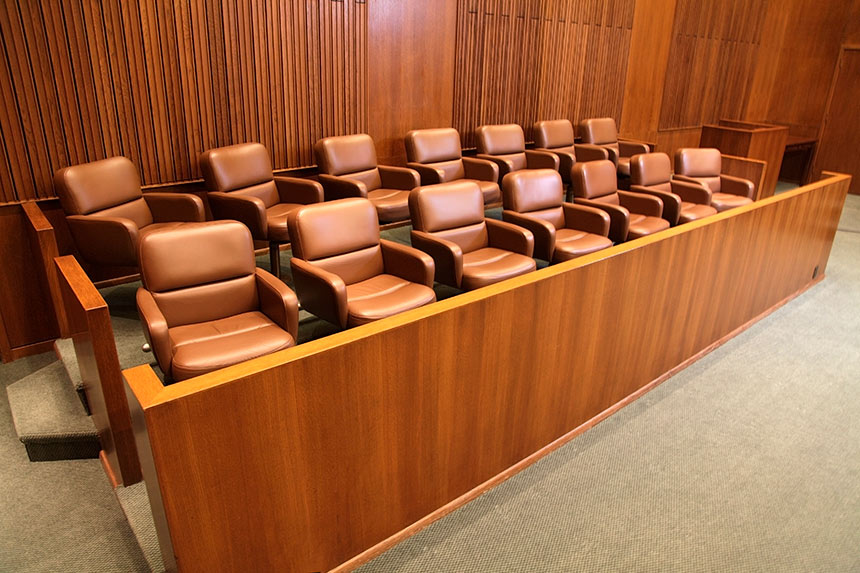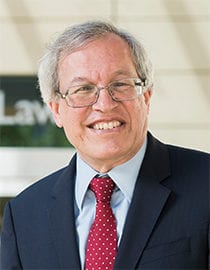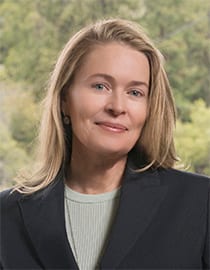
By Gwyneth K. Shaw
A new report from Berkeley Law’s Civil Justice Research Initiative (CJRI) outlines the decline of the nation’s civil jury system — and offers research-based solutions.
Authored by Southwestern Law School Professor Richard Jolly, Cornell Law School Professor Valerie Hans, and Center for Constitutional Litigation President Robert Peck, “The Civil Jury: Reviving an American Institution” examines the civil jury as a pivotal United States system throughout the nation’s history, and reveals how political, legal, and practical attacks have eroded its role.
“The result is a tragic loss of the demonstrable sociopolitical benefits of jury service,” Jolly, Hans, and Peck write. “Much is risked if the attacks on the civil jury continue and if efforts are not taken to reverse the damage already done. Reforms for reviving the institution should be focused on removing barriers to jury access and enhancing fair and accurate jury fact-finding.”

CJRI, based at Berkeley Law and chaired by Dean Erwin Chemerinsky, produces and promotes highly credible, unbiased research on critical issues concerning the civil justice system, including expanding access to justice. The production of the report on civil juries was supported by a generous gift from the American Association for Justice’s Robert L. Habush Endowment.
Other recent publications released by the center cover topics such as piercing prosecutorial immunity through Brady claims and the lessons learned by the court system during the COVID-19 pandemic.
The report from Jolly, Hans, and Peck is exactly the type of thoughtful, research-based advocacy CJRI wants to bring to the judicial system, Executive Director Anne Bloom says.
“This is a timely reminder of the historic and constitutional importance of the jury, tracking all the way back to the founding of our nation,” she explains. “We should be concerned about its demise, and we are grateful to these scholars for their important research on how to revive it.”
A steady, steep decline
Juries do better at fact-finding because of the diversity of voices and the required deliberation and agreement, Jolly, Hans, and Peck write, and jury service leads to increased levels of civic engagement. In addition, the public airing and resolution of private disputes promotes “widespread allegiance to the legitimacy of the civil justice system and democratic self-governance,” which offers benefits beyond the courthouse walls.

The Seventh Amendment of the U.S. Constitution, and the constitutions of many states, protect the rights of litigants to have a jury resolve most disputes. And yet those protections have been worn down, according to Jolly, Hans, and Peck.
Among the causes: Procedural changes that have stripped juries of their fact-finding authority — effectively granting power to legislators and judges that exceed their expertise and constitutional role — and the decades-long campaign by “moneyed interests” to denigrate the role of juries in civil disputes.
The pandemic, which shuttered courthouses for many months, added a unique additional weight, since it’s difficult to empanel a traditional jury under public health restrictions.
The result has been a steady decline in civil cases decided by a jury trial. In 1962 — the earliest source of reliable federal judicial statistics — the rate was 5.5%. That dropped to 1.2% by 2002 and to just 0.48% in 2020. State courts have seen a similar trend.
“Simply put, civil jury trials are the very rare exception and not the rule,” Jolly, Hans, and Peck write.
Research-based solutions
The authors go on to offer six solutions, all grounded in studies done on juries and jurors:
- Adopt a rule making jury trials the default
- Remove caps on damages
- Expand expedited jury trial projects with 12-person juries
- Examine and, if needed, modify jury selection procedures to ensure broader community representation and participation
- Return to 12-person civil juries
- Adopt reforms to make juries more active, including giving preliminary substantive legal instructions and encouraging taking notes, asking questions, and engaging in trial discussions.
Americans ought to be alarmed by the trend, Jolly, Hans, and Peck assert, and deserve a system that works the way the Founders intended.
“The jury serves as an essential bulwark of justice, engrafting the community’s collective wisdom into the judicial department to limit the potential arbitrariness and predilections of a single individual entrusted as judge,” they write. “In this time when the future of American democracy is in greater peril than we have ever experienced in our lifetimes, which coincides with our slow emergence from the ravages of a life-changing and deadly pandemic, we cannot forget that jury service provides a form of public participation and grassroots governance that the Founders considered as important in maintaining a democratic republic as voting itself.”